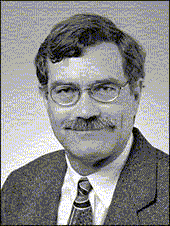 I’m delighted to read this citation, largely written by John Gibson, for John McMillan, the Jonathan B. Lovelace Professor of International Management and Economics at Stanford University.
I’m delighted to read this citation, largely written by John Gibson, for John McMillan, the Jonathan B. Lovelace Professor of International Management and Economics at Stanford University.
John McMillan has made major contributions to the international literature on applications of modern microeconomic theory. Especially prominent strands of his work focus on the economics of auctions, economic reform and transition, and the broader role of market institutions. His work has been influential in the design of policies that have raised billions of dollars for governments around the world through the auctioning of spectrum and other rights. His international standing in the profession is shown by his tenure as editor of the Journal of Economic Literature from 1997-2004.
Even with his international success, John has never forgotten his New Zealand roots. Throughout his career he has kept a close interest in local issues, and has been a frequent visitor to local economics departments, especially Canterbury, and a contributor to NZAE conferences. He also publishes on New Zealand issues, including recent work on the management of economic change, the rate of creative destruction in the economy, and, of course, the economics and strategy of rugby!
John’s contributions also show the importance of economics departments attracting outstanding students from other disciplines. After gaining a Junior Scholarship in Mathematics, Physics, Chemistry and English, he started in undergraduate Chemistry and Mathematics at Canterbury before making the Knights move into an MCom degree in Economics, which he completed with First Class honours in 1973. John then followed Richard Manning to the University of New South Wales where he completed his PhD in 1978. A series of papers on public goods, and especially public intermediate goods, resulted from this work.
After completing his PhD, John moved to the University of Western Ontario where he remained for almost a decade. He was soon joined there by Preston McAfee and a very successful collaboration began with a series of papers on auctions and bidding. Their JEL survey on this topic remains widely used, with over 400 citations in the last decade. Both authors, along with other theorists, were called in to provide advice on spectrum auctions, which is one of the outstanding policy applications of modern microeconomic theory.
The reforms in the centrally planned economies that began with the liberalization of agriculture in China in 1978 soon made their way on to John’s research agenda. Issues of asymmetric information and strategic behaviour that matter in auctions are even more important in reforming economies where weak institutions often fail to protect property rights. This phase of John’s research, carried out at both San Diego and Stanford, ultimately led to his popular book, Reinventing the Bazaar. Understanding why markets work well in many places, but badly in others, is a key to improved prosperity around the world. We can all be pleased that it is a question that continues to be asked by John McMillan, who is to become a Distinguished Fellow of the New Zealand Association of Economists.
It’s especially pleasing and a great privilege for me who has known John as a student to honour him for his work. Economics at Canterbury had a strong focus on microeconomics with the arrival of Bert Brownlie in the Chair and it’s very gratifying that the bulk of John’s work is in this area. No less satisfying for me is to read his academic ventures into developing countries. Despite his considerable academic achievements, John McMillan remains the quintessential Kiwi bloke, modest and charmingly unassuming. As a student, he combined native brilliance with intellectual focus and curiosity. Not many would know that he was awarded the J B Condliffe scholarship as a student. It is fitting that we honour a man from Canterbury whose fame equals, if not surpasses, that of Condliffe, also a graduate of Canterbury and who was Professor of Economics at both Canterbury and Berkeley, California.
Frank Tay
